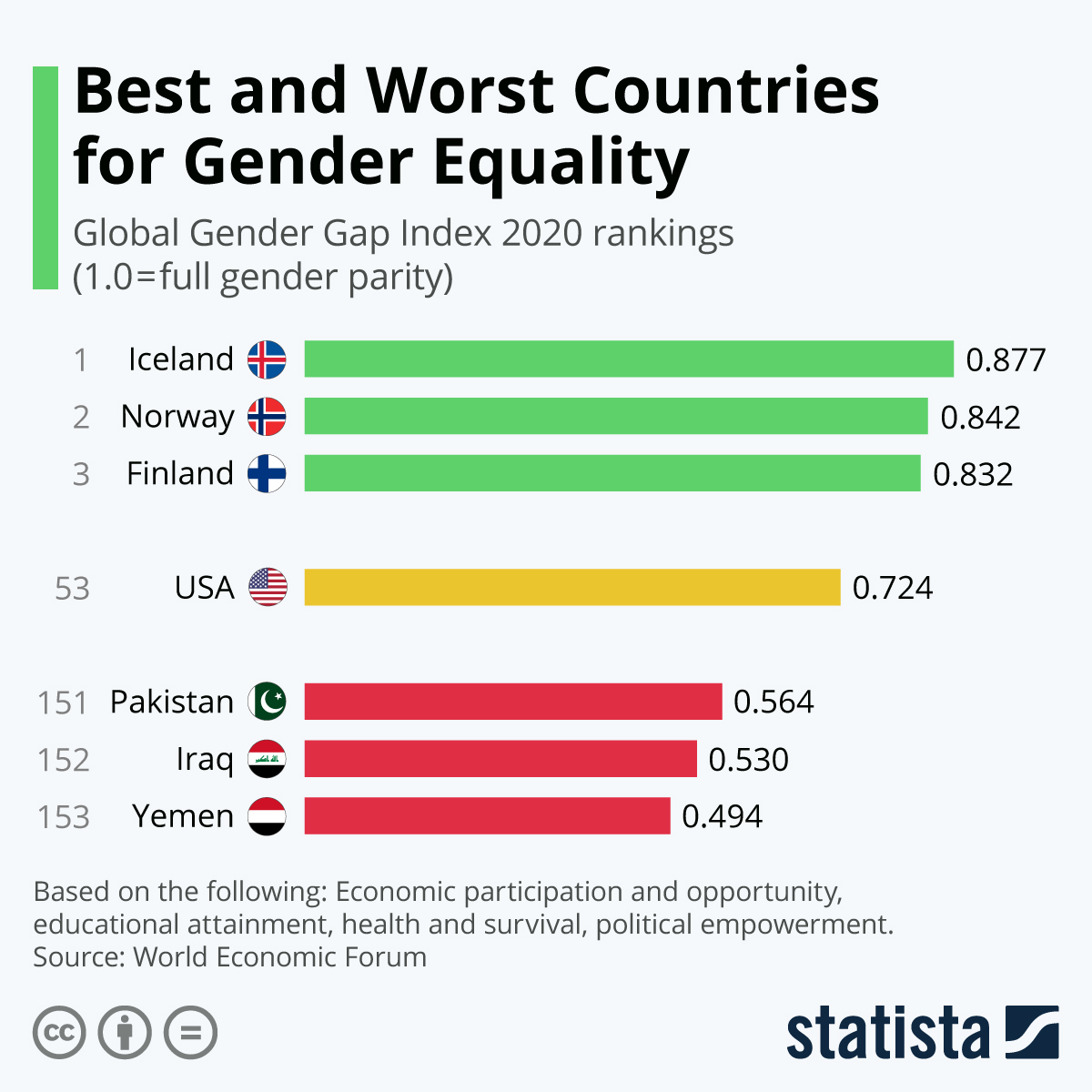Although gender parity is headed in the right direction globally, it’s at a sluggish pace, with the World Economic Forum predicting that the gap will not be closed for another 134 years. But as the following infographic based on the organization’s Global Gender Gap 2024 report shows, the situation varies widely around the world.
Iceland has once been granted first place on the index, having taken pole position for a decade and a half so far. It is the only country to have closed over 90 percent of its gender gap and is followed by Finland, Norway, New Zealand and Sweden. By contrast, Guinea, Iran, Chad, Pakistan and Sudan are considered to be the furthest from what the WEF would consider full gender parity of the 146 countries and territories analyzed.
India isn't close to the top of the ranking either though, placing in rank 129 based on the following metrics: Economic participation and opportunity, educational attainment, health and survival, political empowerment. The South Asian country fell two ranks lower than in 2023, with the decline mainly due to a slight backstepping in educational attainment and political empowerment, while economic participation and opportunity improved. While the share of women are high in primary, secondary and tertiary education enrollments, these figures have only been improving gradually, while the gap between men and women’s literacy rates remains wide (17.2 percentage points).





















